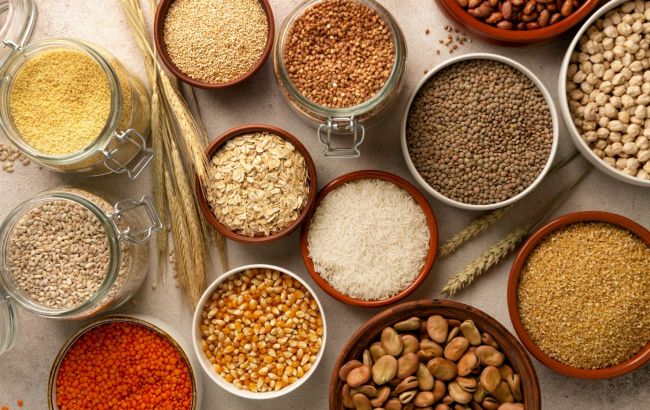This grain is treasure for health: Just few people know about it
 How sorghum benefits your health (photo: Freepik)
How sorghum benefits your health (photo: Freepik)
Sorghum is a forgotten cereal crop that is making its way back onto our tables. This gluten-free grain is rich in protein, fiber, and antioxidants, helps lower blood sugar levels, and supports heart health, reports Real Simple.
What is sorghum
Sorghum is a plant from the grass family. Due to its ability to grow and thrive in dry and drought-prone regions such as Africa and India, it is a staple crop in those areas.
Ukrainian nutritionist Olena Bakovych says that sorghum is the fifth most-produced grain in the world.
Like many other grains, sorghum comes in various forms, such as whole grains, grits, flour, and even popped, similar to popcorn.
In its whole grain and groat form, sorghum resembles quinoa or couscous and has a pleasant nutty flavor.
Health benefits of sorghum
Sorghum is rich in plant-based protein, dietary fiber, vitamins, and minerals. It contains essential micronutrients such as iron, magnesium, B vitamins, and potassium.
Additionally, this grain offers a significant amount of copper, phosphorus, selenium, zinc, and plant compounds.
Tissue health
Half a cup of sorghum contains 10 grams of protein, which is essential for the ongoing growth, repair, and maintenance of various tissues, including muscles, organs, skin, hair, and blood.
Gut health
The high fiber content in this grain also supports gut health. Half a cup of sorghum contains 6.5 grams of fiber, which can aid digestion.
Sorghum also contains prebiotics and polyphenols, which, according to research, may feed beneficial gut bacteria and support the growth of a healthy gut microbiome.
Metabolic health
Fiber and protein are beneficial for metabolic health. They also help prevent overeating and support a healthy body weight, which in turn helps reduce the risk of chronic disease progression.
These macronutrients also help regulate blood sugar levels, aiding in the management and prevention of metabolic disorders like type 2 diabetes.
Heart health
The fiber in sorghum, especially soluble fiber, binds to dietary cholesterol in the small intestine and removes it from the body through bowel movements. This is important because high cholesterol levels can lead to atherosclerosis, or the buildup of plaques in the veins and arteries.
Heart disease often results from such buildup over time.
Immune health
Sorghum contains 12 essential vitamins and minerals, such as zinc, selenium, and copper, which help support a healthy immune system.
The plant compounds and antioxidants in this grain are also beneficial for strengthening immunity. Antioxidants help remove free radicals, which increase the risk of chronic diseases such as cancer and heart disease.
Bone health
The magnesium, phosphorus, and potassium content in sorghum helps build and maintain strong bones by reducing bone mass loss.
Does sorghum contain gluten?
Another key health benefit of sorghum is that it is completely gluten-free.
This means that people with celiac disease or gluten sensitivity can enjoy all the nutritional benefits of this grain without worrying about adverse effects.
How to cook it
Rinse the grain in cold water to remove dust and excess starch. Then soak the sorghum in water for 6–8 hours or overnight — this shortens cooking time and softens the grains. If you're short on time, you can cook it without soaking, just boil it longer.
Place the rinsed grain in a pot, add 3–4 cups of water and salt. Bring it to a boil over high heat.
Simmer for 45–60 minutes until the grains are soft but firm. If water remains after cooking, drain it through a strainer. Sorghum can be served as a side dish, added to salads, or cooked with vegetables.
.jpg) Sorghum grains (photo: wikipedia.org)
Sorghum grains (photo: wikipedia.org)
You may also be interested in:
- What you should never add to oatmeal
- How to cook lentils properly so they turn out perfect
- 5 reasons why you should eat buckwheat regularly
This material is for informational purposes only and should not be used for medical diagnosis or self-treatment. Our goal is to provide readers with accurate information about symptoms, causes, and methods of detecting diseases. RBС-Ukraine is not responsible for any diagnoses that readers may make based on materials from the resource. We do not recommend self-treatment and advise consulting a doctor in case of any health concerns.

